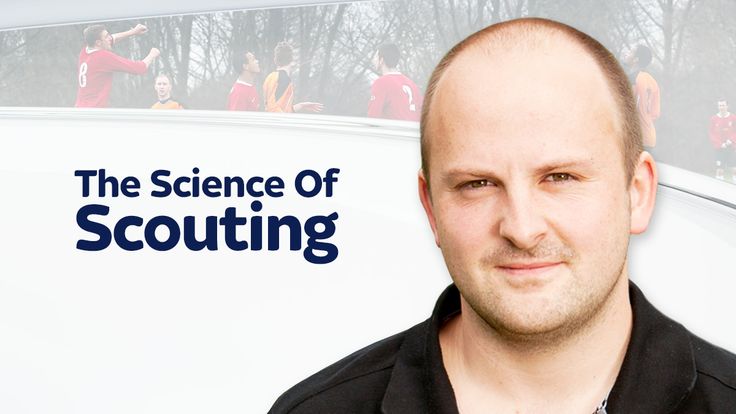As part of our series looking at the science of scouting, Leicester City’s head of technical scouting Rob Mackenzie discusses the changes he has seen in the game as statistics start to be embraced by clubs.

Monday 29 September 2014 19:33, UK
It wasn’t too long ago that the traditional image of a wizened old figure in a big coat sat in the stands with his notebook was the defining one when it came to football scouts. The reality is changing as data provides a more objective understanding of prospective signings.
Rob Mackenzie has witnessed the change first hand. From being on the outside looking in, his office, which he shares with Steve Walsh (Assistant Manager/Head of Recruitment) and Ben Wrigglesworth (Technical Scout), is now at the heart of Leicester City’s operation and just yards from that of manager Nigel Pearson. The shift in emphasis is typical of many football clubs but no less remarkable.
“I came into the recruitment department full-time around two and a half years ago and at that time we had no video resource for players and no statistics,” Mackenzie tells Sky Sports. “It was a traditional approach. Now we have statistical coverage for six leagues across Europe and we do video analysis on every player that comes into the building as well as numerous others.”
Of course, resistance to change remains a feature of football - a sport steeped in over a century of tradition. As a result, convincing clubs to take on new ideas can still be a challenge. Rob Mackenzie insists he has not endured those difficulties at Leicester but understands why it is an issue.
“If I’m honest, I’m very fortunate in that the people I work with across the board from sports science to analysis to scouting are all open-minded. My line manager Steve Walsh and the manager of the football club have given me an opportunity to provide complementary evidence to the vast football knowledge that we have both in the department but also within the football club as a whole.
“Don’t get me wrong, I can understand scepticism towards technical scouting and an analytical approach – these guys have been doing it for 20, 30 or 40 years without any statistics so they could be sat thinking they’re doing just fine thanks very much.”
Mackenzie feels a responsibility to meet colleagues halfway and that means getting involved in traditional scouting too. “My attitude is that I can’t disregard the expertise and the subjective assessments that they have to complete so I make sure that I’m going out to two or three games a week.
“I want to put myself in their position of making subjective evaluations of players and doing the subjective reports that we ask our scouts to do so that I also gain an understanding of their side of it. A lot of my current knowledge was gained through going to watch games with Steve Walsh and David Mills where I was able to ask them questions and see how they interpreted a players performance & what was important for them”
But how has he overcome any lingering resistance to embrace the use of biographical profiling, statistical evaluations and the rest? For Mackenzie, it’s all about putting it in a language that scouts and coaches understand.
“We’ve got people who in the early stage of the journey were perhaps a bit cautious,” he adds. “What you are proposing has to have meaning because otherwise you can get lost in the numbers when a lot of coaches maybe aren’t as au fait with what’s expected numbers wise, they just understand the performances of players that they like. But there’s a process in place now to complement the live observation.”
It remains a complementary role because the tendency to trust eyes above data continues to exist. “The emphasis on the live observation is still far more than any other aspect of the profiling process which is difficult at times because we’ve got extensive data and we’ve looked at a player with our specific Leicester City template in place.
“Then someone might go to one game and say, ‘Not convinced’. That’s when it can be frustrating to deal with the imbalance because, for me, longitudinal data is more stable and more robust than a one-off performance. It’s brilliant for me if he scores a hat-trick but he’s not going to score a hat-trick every week.” The technical scouts aren’t there yet. But things are certainly changing.
Click here to read previous articles in the Science of Scouting series